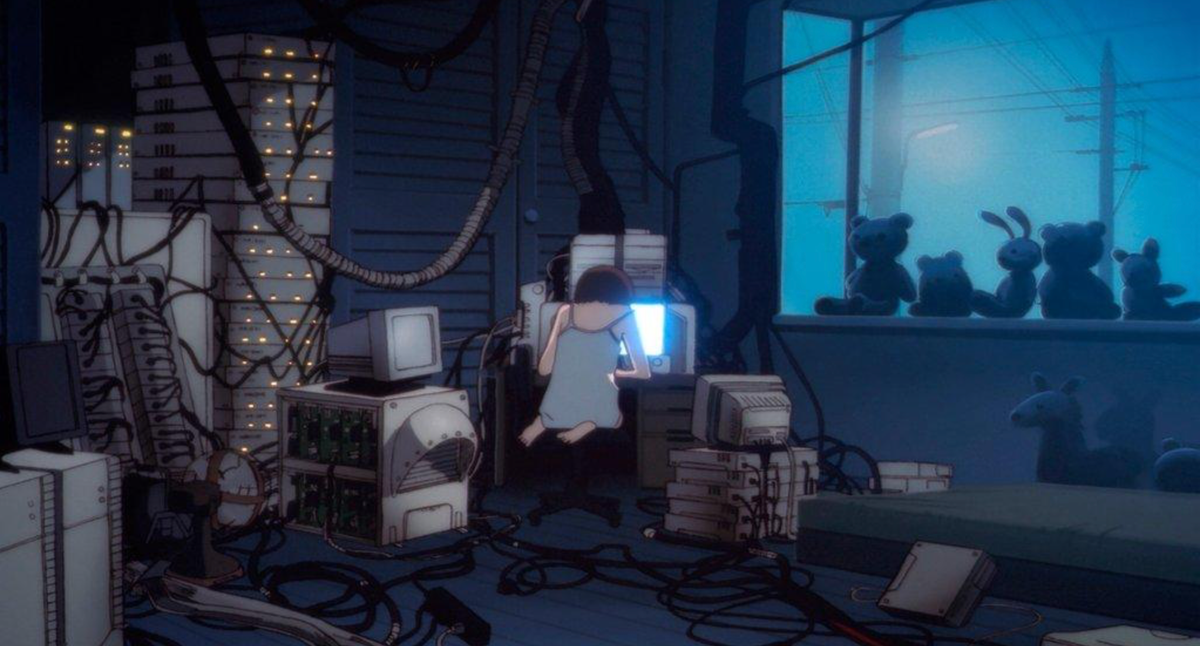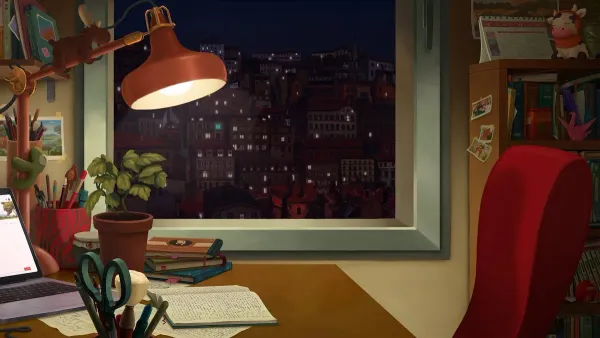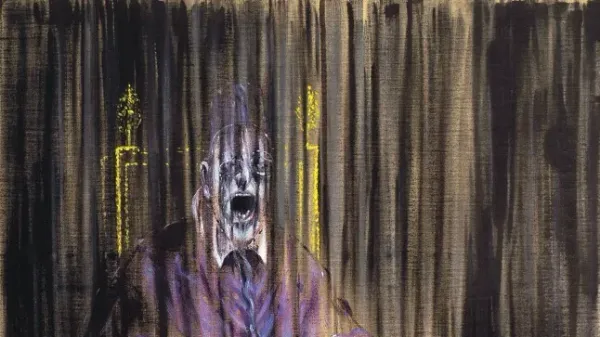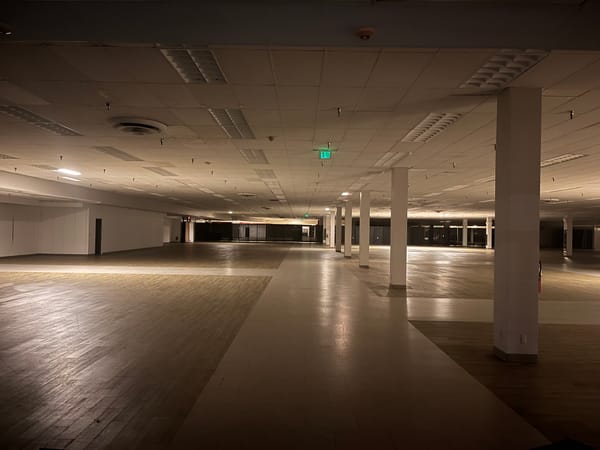Therapy for Dead Girls

When I was about 16, I decided that I wasn’t real.
I don’t remember much of the details of those days, for better and worse. But I recall the certainty I felt then, the concreteness of my refusal. I simply stopped accepting the world. The things I experienced were happening to someone who simply was not me. After all– if this was my life, why did every part of it feel so wrong? I determined that I was just from somewhere else: that my humanity was contingent, a product of some cosmic fuckup casting me into a world I couldn’t recognize or touch. I remember how powerful that refusal felt. I remember clinging to it like driftwood in a raging sea.
Rejection characterized my youth. If you fit the same categories I do (trans, neurodivergent) it probably characterized yours as well. Boys terrified me, girls were an enigma. I violated social codes I didn’t understand. I confused mocking laughter for camaraderie, and bled for it. I was a frustrating mystery to everyone, including myself. I learned to mask. I became very lonely.
Realizing I was trans only heightened this sense of alienation. Finally recognizing your own dysphoria does not lessen it: quite the opposite. The profound sense of disconnect I’d felt from my body my whole life and increasing into adolescence had been given a shape and a target. I grew to appreciate the numbness. It was better, after all, than the alternative.
Rejecting the world granted agency over it. This was not my body; this was not my face; this was not my life. I dreamed myself some marooned castaway beached on a lightless planet. I became an alien, a ghost, an animal, an angel. Whatever kept me furthest away from humanity.
It wasn’t freedom, though. I remained just as alone as before. I allowed myself only to narrativize my suffering, not confront it. Giving up on the possibility of feeling loved or wanted didn’t make the absence of those feelings any easier to bear. I wanted somewhere else to go, but the only other place than here was the grave.
I’m still dealing the fallout. It’s gotten worse recently, now that the Trump administration has declared more-or-less complete war on trans lives. When the state in which you live has deemed you subhuman, there’s a visceral kind of satisfaction in turning that label against them. Fine, fuck you. I’m not a human, and I don’t want to be. It’s the same reason people reclaim words like faggot or tranny. It’s a kind of social riposte, stealing back the dignity that’s been taken from you.
When I’m overwhelmed with stress, the old feelings come up. Every dissociative episode carries with it a seductive quality. It is easier to not be here. If I yield, I get to recast my mental illnesses as my soul’s defense mechanisms against a false reality. I get to imagine that I can wake up to a world where the government isn’t trying to kill me, that everything beforehand has just been a cruel joke. Sometimes I want to.
But there are things to do, because I do want to get better. There are stories and essays to write, people to meet, beautiful things to see. Despite all that’s happened I still feel closer to myself than I ever have, albeit still achingly incomplete. Often it feels like so many of us are on the knife’s-edge between reality and something else, and I still don’t know where, exactly, I’ll fall.
Lately I’ve been thinking a lot about therapy. This is due, in part, to my attempts to resolve two simultaneously true propositions.
- I am a mentally ill person. One of the symptoms of my mental illness is the belief that the world hates me and is out to get me.
- The world hates me and is out to get me.
Therapy, being as it is a model of ‘health’, is predicated on an idea of normalcy. As a trans and neurodivergent person, my mind is unhealthy by default. It was only recently that homosexuality was delisted from the DSM, and even more recently for transsexuality. In an ableist, cissupremacist society, the machines of wellness will always be oriented against my body and mind.
The most concrete example I can name of this is being 5150ed and thereby losing access to my hormones, thereby pushing me into an agonizing dysphoria hole I had to playact normalcy to escape from. Experiences like this have made it difficult to seek out care in general, or to establish the baseline level of trust necessary to conduct a relationship. In my most cynical moments, I suspect that’s the point.
The language of health and wellness is being used to kill us right now. Trans bodies are seen as ‘diseased’ and ‘mutilated’, trans minds as ‘deranged,’ ‘perverse,’ and ‘unwell.’ In times like these, I don’t begrudge anyone for their resentment or suspicion of these institutions now. Most likely, we’re heading back to a period of repression of LGBT people through the psychiatric complex, where desistance and ‘gender-explorative therapy’ (rd. conversion therapy, in its more or less overt forms) become the norm, if not official practice.
No one’s ever written a guide to living through a genocide. I’m not sure how much I should even be attempting right now. Would it be ‘healthier’ to not be affected by what’s happening? Is that even reasonable? I can’t help thinking that I should be a wreck right now. Am I giving myself too much leeway? Not enough? I don’t know. “I tell myself I bear witness” and all that.
We need to find some way of getting well if we’re going to get through this without killing ourselves and each other. I guess that’s why some of us turn to religion: it’s a path to healing outside the typical therapeutic model. Just as much, though, I feel like it often falls into many of the same pitfalls. I don’t know how much liberation can be found in welding yourself to an institution that has historically been the hammer used to crush us.
I know the answer is supposed to be ‘community’ but to be honest I’m as skeptical of the ‘community’ at large as anything else. In the past few months I’ve become increasingly cynical about the idea that there’s going to be any kind of mass solidarity between us. We’re all too damaged and eager to wield our own trauma as a cudgel against anyone we think we can affect our will over. Maybe that’s just my own issues talking. Paranoia is one of the symptoms– although, nowadays, it might be well-justified.
I read this article recently about the Auschwitz historical site which has been recently visited by one of our fascists-in-chief as a way of expiating himself of the crime of saying Nazi shit (because he’s a Nazi). Holocaust sites have increasingly become employed this way. It’s the modern-day equivalent of going on pilgrimage. The author pointed out that the central narrative of the Holocaust itself has become increasingly Christianized as time goes on. Narratives of sin and redemption have become inextricably linked to it in the popular imagination. There’s this idea that trauma ennobles the soul, that it makes one stronger, somehow, more empathetic. I don’t believe that anymore. Trauma just hurts, that’s all.
It’s the same way with us. Each of us has been wounded by the world. For some of us, that wounding is so total that we retreat entirely, withdrawing into ourselves, rejecting the world. But that wounding doesn’t qualify us to treat one another, anymore than having cancer makes you an oncologist. So much of what I’ve observed in the queer spaces I’ve inhabited has been people turning their own pain into a cudgel, afflicting others for the sheer satisfaction of feeling like they’re able to matter to someone.
The state of the modern world seems to me to be a breakdown not just of relationships themselves but the foundational psychic structures that make relationships possible. Increasingly I feel despair over what feels like the fundamental incapacity to ever genuinely communicate with another person. Symbols peel themselves from their referents. As an artist (at least, someone aspiring towards art) there’s nothing that troubles me more than this kind of semiotic collapse.
When I was younger I used to have this impression that all my words passed through of a filter immediately upon exiting my mouth. The filter twisted their meaning, so it was not certain if anything I said could be heard at all, at least not in its original form. This is, in essence, the horror of the closet. It is a kind of safety that mutilates you. You are insulated. You are secure. You are utterly alone.
Healing cannot be accomplished on one’s own, at least not without tremendous difficulty. But so much of the ways our society expects people to heal are deeply punitive and individualizing. One of the reasons I’ve struggled intensely with DBT (Dialectical Behavioral Therapy) is that in its self-managerial aspects it reminds me intensely of the perpetual self-censorship and optimization expected of the neoliberal subject. I have an extreme suspicion of dominant therapeutic modes as a form of propaganda, inherently assuming the hegemonic model as the goal to which every subject should aspire. But the total rejection of therapy itself frequently comes wrapped in what feels like a kind of aggressive infantilism, turning trauma into an excuse to violently reject any impetus towards self-improvement.
I do not have a good conclusion to this article. I am not a sage, or a thought leader, and I don’t want to be one. Nonetheless I am convinced that we are heading towards a world which is more paranoid, more traumatized, and more isolated, and that each of these things leads inexorably towards further misery and fascism.
Organization will be essential in the years to come, but if we’re to succeed in these efforts we need to start asking ourselves how we can heal the wounds that preclude organization in the first place. How do we build a world, or at least a (gag) community in which trust is possible? We (and by this I mean both the Left broadly and trans people specifically) have become extremely adept at internecine violence, at siloing ourselves off, at regarding others as potential threats first and foremost. If we’re serious about constructing a new world, we need a new model of healing. The world wants us dead and broken. In the face of this, maintaining a belief that we can still be whole and loved is a radical act.


